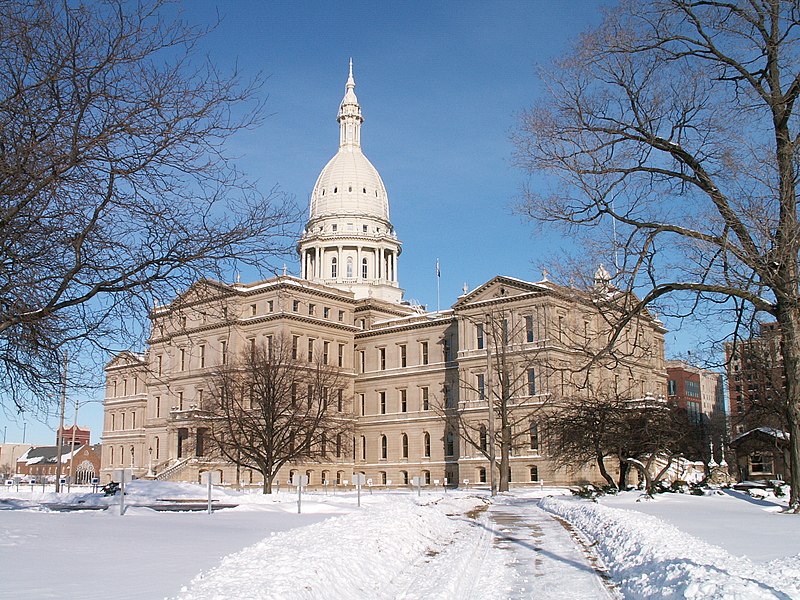 “Michigan-Capitol-2005” by Phillip Hofmeister is licensed under CC BY-SA 3.0.
https://commons.wikimedia.org/wiki/File:Michigan-Capitol-2005.jpg
“Michigan-Capitol-2005” by Phillip Hofmeister is licensed under CC BY-SA 3.0.
https://commons.wikimedia.org/wiki/File:Michigan-Capitol-2005.jpg
It’s a good day for the people of Michigan. Earlier this week, the Michigan State Senate passed a tax relief bill of historic proportions, voting to reduce their income tax dramatically. This is yet another victory for taxpayers among a tidal wave of states across the country, reducing, if not eliminating, their income taxes, allowing taxpayers to keep more of their hard-earned money.
Senate Bill 768 (SB 768) was approved by the Senate Finance Committee in late January, and this week, the Senate finally voted on it, passing it by a margin of 22-16. The bill cuts both income taxes and corporate income taxes down to 3.9% (from 4.25% and 6%, respectively). It also creates a $500 non-refundable tax credit to children under the age of 19 and increases the tax exemption on retirement income to $30,000 for individuals and $60,000 for couples.
State Senator Aric Nesbitt supported the bill, saying, “State government may be flush with cash, but it’s not our money. It’s not the governor’s money. It’s the people’s money. And right now, they need to be sending less of it to Lansing, so they can have more of it to fill up their cars, heat their homes, and feed their families.”
He’s not the only one supportive of the bill. The Tax Foundation has said that, should SB 768 become law, it will give Michigan the 9th best tax climate in the Union (up from 12th where it currently sits at 12th).
The Tax Foundation also says that “If the rate were reduced to 3.9 percent, Michigan would exceed its neighbors and claim the second-lowest rate of any state with a corporate income tax, narrowly beating Missouri and Oklahoma, which are tied at 4 percent. It would trail only North Carolina, where the rate is currently 2.5 percent and is gradually being phased out entirely.”
Despite this, not everyone is pleased. Democratic Senator Curtis Hertel opposed the bill, saying, “This bill is nothing but a show; an attempt to pay off large corporate donors and does nothing for the people of Michigan.”
Michael LaFaive, senior director of fiscal policy at the Mackinac Center, disagreed with this assessment, saying, “Our research has shown that returning the personal income tax rate to 3.9% would create 15,000 new jobs for Michiganders in its first year alone. We thank the senators who approved this broad-based tax relief for Michigan families and businesses.”
SB 786 will now go to the House for consideration with its passage in the Senate. Should they approve, it will go to Gretchen Whitmer herself. Income tax cuts are suitable for everyone, rich or otherwise. People keep more of their own money and spend it as they see fit. We hope the House and Governor agree and give the people of Michigan the tax relief they deserve.

